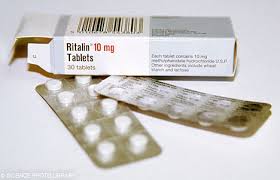Consequences of Stimulant Addiction

Stimulants can cause severe problems in a person’s life.
Stimulant abuse is a dangerous situation that can quickly spiral out of control leaving the user in a world of pain and suffering. The consequences of stimulant addiction may include anything from serious withdrawal symptoms that make quitting seem like an impossible task to heart attack, stroke or even death. If you or someone you know is addicted to stimulants, don’t be afraid to ask for help—treatment is available to assist you in overcoming this terrible disease.
According to the National Drug Intelligence Center, stimulant abuse can lead to tolerance and physical dependence which requires professional treatment and may be characterized by using increased doses in order to produce the same euphoria that was originally sought after. Binging and crashing becomes a way of life for the user and over time, extreme depression, fatigue and anxiety will set in. Chronic stimulant abuse can result in many different side effects to the user’s health and mental well-being.
Long Term Stimulant Addiction Effects
Sustained stimulant abuse and the addiction that results from consistent use of stimulants can lead to the following long term effects:
- A toxic psychosis that resembles that of schizophrenia.
- Behavioral disorders including other forms of impulse control disorders or OCD.
- Physiological disorders that may require lifelong treatment.
- Damage to the heart especially damage to the lining of the heart.
- Cardiac arrhythmias and other forms of cardiac distress.
- Malnutrition, vitamin deficiency and dehydration.
- Various forms of mental illness.
- Consistent lethargy and fatigue.
- Ulcers and damage to the stomach lining or other damage to the gastrointestinal tract.
Treatment Options to Defray the Consequences of Stimulant Addiction
Fortunately, there are some methods of treatment that can help to offset or defray some of the consequences of stimulant addiction. While nothing can take back the fact that a user has a heart attack, stroke or potentially suffers another serious health side effect as a result of their use of stimulants, the following treatment options may help to reduce the addiction and prevent further complications from occurring:
- Disulfiram – according to Harvard Health, this medication has been used in multiple studies and is proven to help reduce the use of stimulants which can help to defray or at least stop the harmful effects of the drugs from continuing to plague the life of the user.
- Baclofen – the muscle relaxer, Baclofen, has been found in a few studies to reduce cravings for certain stimulants such as cocaine.
- Anti-drug vaccines – although none have been approved by the FDA yet, certain drug vaccines are in the workings and have been found in preliminary studies to reduce the effects of stimulant addiction and prevent misuse.
Other methods of treatment that can at least help to reduce or stop cases of stimulant addiction included various forms of behavioral therapy, counseling and support. If you or someone you know is using stimulants on a regular basis, consider seeking professional help immediately to help reduce the long term effects that this disease will have on your physical and mental well-being.



